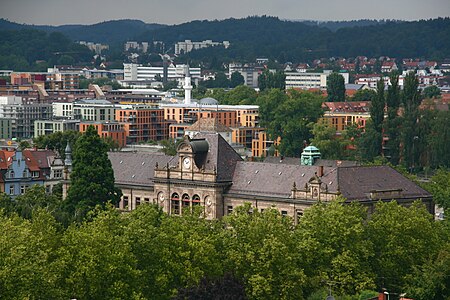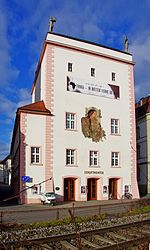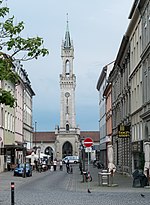Alexander-von-Humboldt-Gymnasium, Konstanz
1830 establishments in BadenEducational institutions established in 1830Gymnasiums in GermanySchools in Baden-Württemberg

The Alexander-von-Humboldt-Gymnasium (English: Alexander von Humboldt Gymnasium) is a Gymnasium in Konstanz, Baden-Württemberg, Germany. The eponym is Alexander von Humboldt (1769–1859). The school has approximately 82 teachers and 985 students.
Excerpt from the Wikipedia article Alexander-von-Humboldt-Gymnasium, Konstanz (License: CC BY-SA 3.0, Authors, Images).Alexander-von-Humboldt-Gymnasium, Konstanz
Untere Laube, Verwaltungsgemeinschaft Konstanz
Geographical coordinates (GPS) Address External links Nearby Places Show on map
Geographical coordinates (GPS)
| Latitude | Longitude |
|---|---|
| N 47.666388888889 ° | E 9.1736111111111 ° |
Address
Alexander-von-Humboldt-Gymnasium
Untere Laube
78462 Verwaltungsgemeinschaft Konstanz, Konstanz-Altstadt
Baden-Württemberg, Germany
Open on Google Maps









